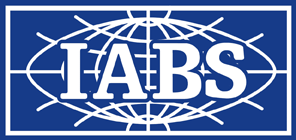
CONFLICT OF INTEREST
IABS ADDRESSES THE ISSUE OF POTENTIAL CONFLICT OF INTEREST IN MEMBERSHIP
The role of IABS in the history of biologicals is well-recognized by industry, regulatory agencies and academia. And there is a desire on the part of IABS’ constituents for the organization to continue as a platform for the exchange of experience and ideas in the context of working towards solutions to problems in biological standardization.
Several years ago, IABS reviewed its mission and the way in which the organization was structured. As a result, membership in IABS was opened not only to individuals with an interest in biologicals, but to organizations (both nonprofit and for-profit) as well. An unintended consequence of this change was the perception by some that there was a potential conflict of interest (COI) issue due to the fact that for-profit organizations would be supporting IABS directly through their membership fees, and that IABS could lose its position as a neutral organization. As a result, some key organizations were reluctant to become institutional members.
IABS management reviewed this issue on several occasions, and it was discussed at the General Assembly in May 2012. The result was a unanimous decision to revise the Constitution to address the problem by allowing institutions (both nonprofit and for-profit) to become members with no membership fee. In other words, the potential COI due to financial support in the form of membership fees from for-profit organizations was removed, while at the same time continuing the core mission of IABS: to serve as a platform for representatives of government, academic, and industry to address key issues in regulatory science in a neutral environment, and to make recommendations for consideration by official bodies. This decision has significant financial implications for IABS that must be addressed; but on balance it was agreed that it would be in the best interest of IABS and the communities it serves to remove this potential element of COI. A further protection from the potential influence of for-profit organizations was already incorporated into the Constitution in 2010. Namely, for-profit entities do not have voting rights at the General Assembly, which is the final decision-making authority of the organization.
While IABS will no longer receive general financial support from institutional member fees for its operation, we will continue to request financial assistance from academic, industrial, and governmental organizations for specific conferences, as we have in the past, and for which we are grateful. It should be noted that such donations do not influence IABS policies.
We are hopeful that with the COI issue now resolved in a clear and definitive manner, we will be able to move ahead with the further development of a membership based on a broad range of organizations and individuals interested in working together to resolve issues through developing a consensus and an action plan to achieve regulatory progress on important issues in biological standardization.
IABS
Rue Mina-Audemars 3
CH-1204 Geneva
Switzerland
